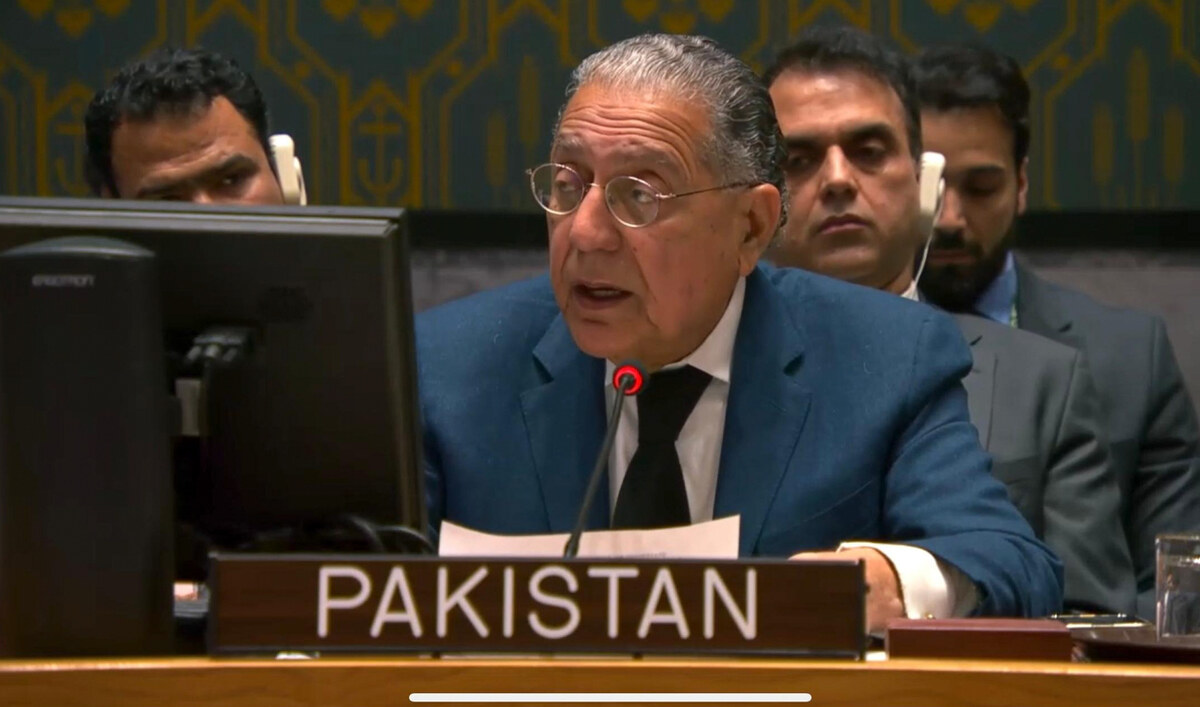ISLAMABAD: South Korean shipping company, HMM, on Wednesday launched the India North Europe Express (INX) weekly shipping service in Pakistan, providing the South Asian country direct access to Europe.
The service, launched in collaboration with Ocean Network Express (ONE) container liner and Pakistan’s United Marine Agencies (UMA), will ensure timely and efficient delivery of Pakistani goods to the destined European ports and beyond, according to HMM.
The development comes amid Pakistan’s efforts to boost trade and seek international partnerships to expand its maritime activities, according to Pakistani officials. The initiative will streamline logistics, enhance connectivity, and drive economic growth in the region.
“Our country has abundance of marine, fisheries, mineral and energy resources that can generate additional revenues,” said Vice Admiral Faisal Abbasi, Pakistan Navy commander in Karachi, noting that Pakistan was located at the crossroads of three geographical locations: the gateway to Central Asia, Southwest Asia and the Arabian Gulf.
He said the sea lines of communication (SLOCs) allow nations to stretch beyond their land borders, facilitating access to and exchange of raw materials and trade goods.
“Today, as much as 75 percent of international trade takes place over water and same is expected to continue growing in foreseeable future,” Vice Admiral Abbasi added.
The service, which was launched at a ceremony in the port city of Karachi, will begin operations on Feb. 5. It will directly link western India to northern Europe, according to HMM. The maiden voyage will begin from Karachi under the port rotation: Karachi–Hazira–Mundra–Nhava Sheva–Colombo–London Gateway–Rotterdam–Hamburg–Antwerp–Karachi.
“The INX service promises a robust, direct maritime connection from Western India to Northern Europe, turning around in just 11 weeks with a fleet of 6,000 TEU container ships,” said Sohail Shams, CEO of the United Marine Agencies (UMA), the HMM agent in Pakistan.
“This development not only diversifies maritime service portfolio in the region but also amplifies opportunities for regional trade and global transshipment through this strategic hub.”
He said UMA is dedicated to providing outstanding shipping services and plays a crucial role in strengthening Pakistan’s maritime trade through its representation of leading global shipping lines and handling of cargo to destinations worldwide.
“This service signifies more than just a route, it represents progress, innovation, and the shared commitment of our global partners to simplify and enhance international trade,” Sohail said. “This strategic network underscores the significance of Karachi as a vital trade hub and gateway to global markets.”
Yang Jungmo, a top HMM official for Southwest Asia, also addressed attendees at Wednesday’s launch, highlighting the significance of the INX service for global trade and emphasizing the company’s commitment to offering reliable and efficient shipping solutions.
Earlier this month, Dubai-based logistics giant DP World, in collaboration with Pakistan’s National Logistics Corporation, launched a feeder service to transport shipping containers from Dubai to Karachi, Pakistani state media reported. Pakistani officials and DP World have also finalized terms for a freight corridor project from Karachi Port to the Pipri Marshalling yard in southern Pakistan.
Pakistan is currently on a tricky path to economic recovery since avoiding a default in June 2023. The South Asian country last year secured a new $7 billion loan from the International Monetary Fund (IMF) and has been actively pursuing trade and investment opportunities to put the economy back on track.
Pakistan joins global shipping line connecting it directly to Europe amid efforts to boost trade
https://arab.news/42ewc
Pakistan joins global shipping line connecting it directly to Europe amid efforts to boost trade

- The INX weekly shipping service will begin its operations from Karachi on February 5
- The service will streamline logistics, enhance connectivity and drive economic growth

















